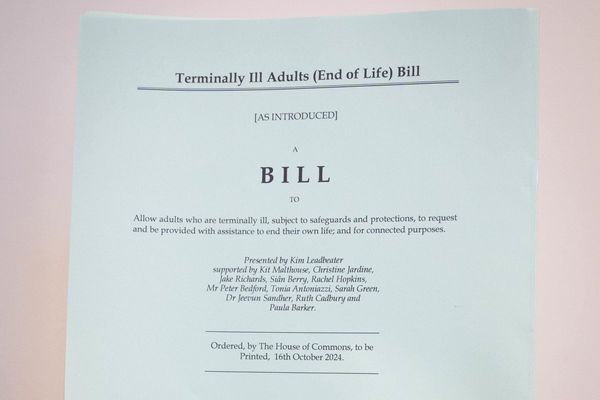
A cash machine. That was how Bernard Looney, the chief executive of BP, described his company back in November following last year’s sharp rise in global oil and gas prices. And the size of the company’s bank balance has now duly been revealed: profits just shy of £10bn last year – the highest in eight years.
Clearly, these are windfall gains. BP had not expected a fivefold increase in the wholesale price of gas during 2021. Nor did it forecast that the cost of crude oil would currently be nudging its way towards $100 a barrel.
Unsurprisingly, therefore, there have been calls for the government to make a sizable withdrawal from the cash machine in the form of a windfall tax. Rachel Reeves, the shadow chancellor, was quick to repeat Labour’s call for a one-off increase in corporation tax on North Sea producers to fund lower bills for consumers.
Hang on a bit, BP and the other energy companies say. High prices now are simply the corollary of rock-bottom prices during the depths of the pandemic, a period when crude prices briefly dipped below zero. What’s more, the government has been urging energy companies, such as BP, to invest more in renewables in order to speed up the UK’s transition to a net zero carbon economy. Ministers can either have a short-term, and partial, fix to Britain’s cost of living crisis or they can have a long-term solution to future energy needs. They can’t have both.
Actually, they can. BP set out its plans to increase investment in renewables tenfold (from a low base) before it reaped windfall gains from rising fossil fuel prices. The fact that the company has earmarked more than £1bn for share buybacks – which boost the company’s share price – suggests BP would have no trouble sticking to its renewable investment strategy were a windfall tax to be levied.
As things stand, a windfall tax is not part of Rishi Sunak’s plans, but he still has time to change his mind before the spring statement on 23 March. There are three reasons for a rethink: the cost of living crisis will leave millions of households a lot worse off even after the Treasury’s energy support package; previous Tory governments have found windfall taxes a useful way of raising money in tough times; and it would shoot Labour’s fox.
Regulation of energy firms was too lax, Ofgem head tells MPs
Regulation was too lax. Only when it was too late did the penny drop that there was dodgy stuff going on. In retrospect, it might have been a good idea to tighten up supervision rather than put so much trust in the power of market forces.
Sound familiar? Of course it does. That, broadly, was the result of the postmortem examination into the near-collapse of banks during the financial crisis of 2007-09.
And it was what Jonathan Brearley, the head of the energy regulator Ofgem, had to say to MPs when asked to explain why 29 companies had gone bust in recent months.
In both cases, there was the unmistakable sound of stable doors being shut long after the horse had bolted. In both cases, the British penchant for light-touch regulation meant insufficient attention was paid to financial resilience.
Brearley said that with “hindsight” there should have been tougher action to protect consumers against poorly run providers, a statement of the obvious if ever there was one. The point about regulation is that it is supposed to work in the bad times as well as the good times. Ofgem spectacularly failed that test.
Annual growth rate will not last, says economic thinktank
Later this week the government will be able to boast of the strongest annual growth since the second world war. The advice of the National Institute of Economic and Social Research (NIESR) – one of the UK’s most august thinktanks – is that ministers should make the most of it because the good news is not going to last.
The NIESR says the Bank of England is raising interest rates as it plays inflation catch-up, so it makes no sense for the Treasury to tighten policy simultaneously through tax increases. Indeed, the chancellor has a choice: scrap April’s planned national insurance increase or risk boom turning to bust. That choice seems to have been made and it is the wrong one.







